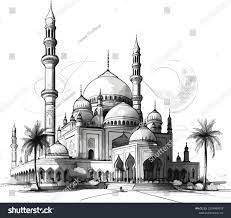How to get out of the Jinx Muslim Face at Present?
- Aslam Abdullah
- Sep 19, 2021
- 2 min read

For as long as we remember, we have only seen misery, poverty, helplessness widely prevalent in our communities worldwide—a community of over 1.8 billion lives in a state of paradoxes. Muslims are 21 percent of the world population. They have 20 percent of the land and generate $4.83 trillion, or five percent of the world GDP. Yet, with average GDP of 5,108.78, the Muslim per capita is three times less than the global average of $12,820.29.
Illiteracy is rampant, with over 40 percent of the Muslim population being illiterate. Thirty-five percent of the 2 billion people living below the poverty line are Muslims. Nearly half of the Muslim people live in poverty.
Sixty percent of the Muslim population do not have access to clean water, and 70 percent do not have a place they can call home. Forty percent do not have sufficient clothing to cover them.
Of the 83 million displaced people, 70 percent or more are Muslims. Unfortunately, the Muslim community is the minor academic community in the world. Jews with an average of 13.4 years of schooling; have the highest number of post-secondary degrees per capita (61%). Muslims come at the bottom.
They have one thousand eight hundred forty universities and degree awarding institutes. Yet, only eight universities achieved a place within the top 500 universities in the global science ranking.
Regardless of the claims, neither the religious nor the secular leadership has contributed enough to restore its dignity.
The secular leadership blames religion for the prevailing conditions, while the religious leadership points fingers at secular rulers for the misery. For over two centuries, the conflict between secular and religious has exacerbated the powerlessness of the Muslim masses. From the time when Muslim religious leaders prohibited the use of the printing press to the rejection of mass media such as radio, television, and the internet, spiritual leadership has played havoc with the lives of innocent people. Secularists devoid of any specific understanding of their communities committed their countries to ideas rooted in imperialism and neocolonialism. They used religion when it suited them, and religious leaders supported them whenever they got a price. Both were corrupt. Secularists looted the national resources, and spiritual leadership exploited people's sentiments to mislead and misplace their priorities.
The Muslim world's ongoing crisis does not allow the community leaders, activists, and academics to devote their energies to envision a vibrant progressive community to play a constructive role in the world.
We have become a reactionary community. Rather than developing our vision of the society we want to create, we focus on what others say about us. It is not how we build strong communities. We have to move forward beyond lamentations and complaints. It's a task that requires collective thinking and action to get out of the reactionary mode we live in at present. How do we do that? Our leaders and intellectual need to come together to take bold steps. We need to focus on three fundamental questions. 1. What kind of individual character Islam promotes for a healthy community? What kind of community Islam intends to build for a healthy society? How can Muslims contribute to create a better human society?



Comments